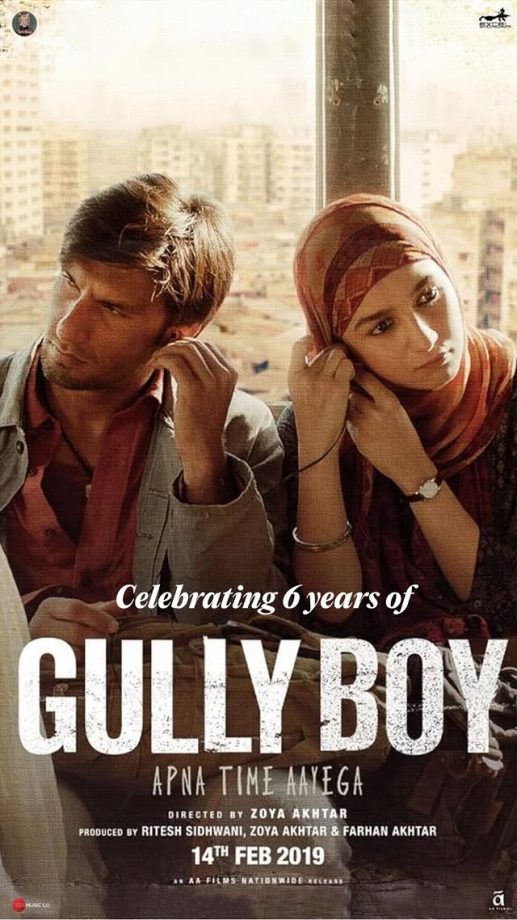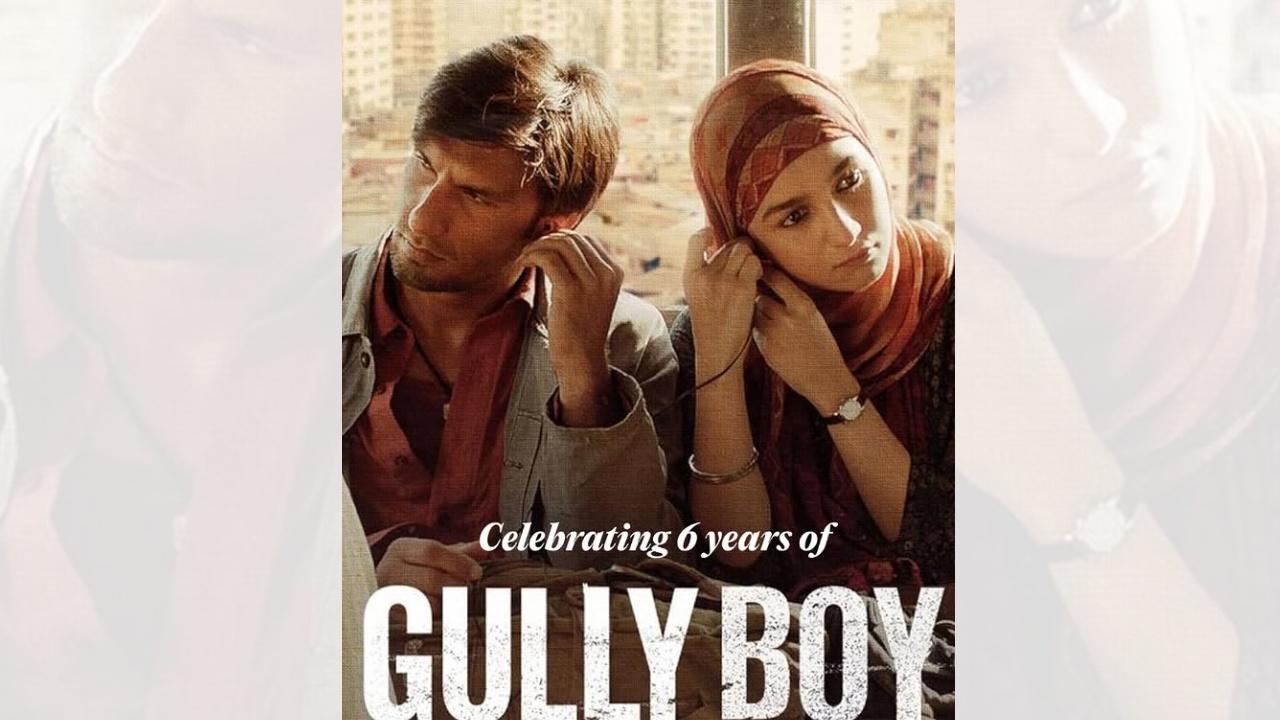Excel Entertainment and Tiger Baby’s Gully Boy, starring Ranveer Singh and Alia Bhatt, received roaring appreciation upon its release in 2019. Premiering at the Berlin International Film Festival on 9 February 2019, the film officially hit theaters on 15 February 2019, earning widespread acclaim for its music, cinematography, Zoya Akhtar’s direction, screenplay, dialogues, and powerful performances—particularly those of Singh, Alia Bhatt, Siddhant Chaturvedi, and Vijay Varma.
The film was the eighth-highest-grossing Hindi film of 2019 and gained global recognition, winning the NETPAC Award for Best Asian Film at the Bucheon International Fantastic Film Festival in South Korea. It was also selected as India’s official entry for Best International Feature Film at the 92nd Academy Awards, cementing its status as a landmark film.
As Gully Boy marks six years, here’s why it remains a modern-day classic:
1) Powerhouse Performances That Left a Lasting Impact
Ranveer Singh’s career-defining performance as Murad captured the essence of an underdog striving for greatness, while Alia Bhatt’s fierce portrayal of Safeena gave Bollywood one of its most memorable female characters. Siddhant Chaturvedi’s breakout role as MC Sher turned him into an overnight sensation, and Vijay Varma’s layered performance as Moeen added depth to the film. Every actor, from Amruta Subhash (Murad’s mother) to Kalki Koechlin (Sky), brought authenticity, making Gully Boy feel raw and real.
2) Impeccable Storytelling That Redefined the Underdog Narrative
Zoya Akhtar and Reema Kagti’s screenplay took the classic rags-to-riches arc and gave it a fresh, deeply emotional twist. The film didn’t just focus on Murad’s rise in the hip-hop scene—it explored class struggles, personal battles, and self-discovery with nuance. Every moment, from his silent resilience to his lyrical outbursts, felt authentic and deeply personal, making Gully Boy much more than just a music film.
3) Dialogues & Direction That Hit Hard
Zoya Akhtar’s vision brought Mumbai’s underground hip-hop culture to life, making the city itself feel like a character in the film. Every frame captured the energy of street rap, cyphers, and the grind of the underprivileged, making the storytelling immersive. The dialogues by Vijay Maurya became instant classics—whether it was Safeena’s fiery “Mere boyfriend se gulu gulu karegi toh dhoptungi na usko” or Murad’s defiant “Tera time aayega.”
4) “Apna Time Aayega” Became More Than Just a Song
Few Bollywood films give birth to a cultural anthem, but Gully Boy did exactly that. “Apna Time Aayega” wasn’t just a song—it became a mantra of self-belief and hustle, resonating far beyond the film. Even today, the phrase is used as an expression of ambition and resilience, proving Gully Boy’s influence isn’t fading anytime soon.
5) A Social Commentary That Still Feels Relevant
At its heart, Gully Boy wasn’t just about hip-hop—it was about dreaming beyond societal constraints. The film powerfully highlighted economic disparity, class struggles, and the lack of opportunities for the underprivileged. Murad’s journey wasn’t just about making music; it was about breaking free from a system designed to hold him back. This theme of aspiration in the face of adversity is why Gully Boy continues to strike a chord even today.

From its stellar performances and groundbreaking storytelling to its hard-hitting dialogues and lasting cultural impact, Gully Boy has all the makings of a modern-day classic. Six years on, it remains a landmark film in Bollywood’s history, proving that “Apna Time Aayega” wasn’t just a song—it was a promise fulfilled.


